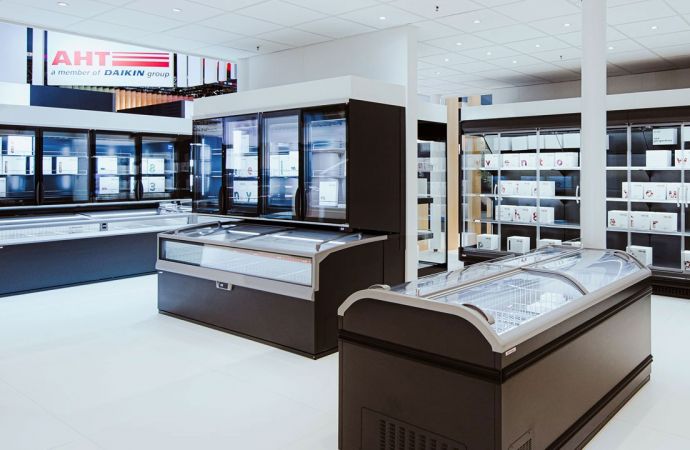An event at the European Parliament on 7 March, organised by publisher of this website shecco and 3M, highlighted industry’s efforts to develop the HFC-free equipment that will help deliver the EU F-Gas Regulation's objectives.

The new EU F-Gas Regulation, which entered into force in 2015, is progressively banning the use of certain HFCs in different types of new equipment. Key European industry players are already adopting natural refrigerants instead, heard participants in an event organised by shecco (publisher of this website) and 3M at the European Parliament.
“In 2018, we will see the largest reduction steps in the phase-down mechanism. And that also presses the point that it is time to take fast action now,” Yvon Slingenberg, director of the department responsible for the EU F-Gas Regulation at the European Commission, told participants in the event, held in Brussels on 7 March 2018.
“We know that in the market, there are some players who are taking this in a very proactive manner. It is good and encouraging seeing there is really great potential to reduce the use of HFCs in a quick manner,” Slingenberg said.
Fast action includes “installing new equipment with climate-friendly new alternatives” such as natural refrigerants, explained Slingenberg.
Fast market development of natural refrigerants, powered by the EU F-Gas Regulation
shecco presented the latest market development of natural refrigerant-based equipment, the main alternatives to HFCs. Klára Skačanová, shecco’s market development manager, highlighted the growing investments in natural refrigerants across Europe.
“With economies of scale and the multiplication of players on this market, the cost of natural refrigerants-based equipment is going down,” Skačanová said. “European companies' ongoing efforts to improve energy efficiency on one hand, and the increasing adoption of these types of technology on the other, is having a positive impact both on the upfront cost and the lifecycle cost for the end user,” she added.
End-user perspective on NatRefs future
Delhaize Belgium, part of retail giant Ahold Delhaize, outlined its natural refrigerant strategy during the event.
Commercial refrigeration is one area in which the EU F-Gas Regulation is already beginning to bite. In 2022, bans on using certain HFCs with GWPs above 150 in new centralised and plug-in commercial refrigeration equipment will come into effect.
“13% of the group’s sites already have natural refrigerant-based installations,” said David Schalenbourg, director of department – building projects, format & maintenance at Delhaize Belgium (part of Ahold Delhaize Group).
Emergency call for revising hydrocarbons standards
Joachim Maul, from German manufacturer AIT, showed how the company's propane-based heat pumps can be a solution to upgrade obsolete boilers in existing constructions. R290 systems, according to Maul, can be taken to mass production in a straightforward manner, and are capable of reaching high temperatures efficiently even at low ambient temperatures.
However, the technology faces legislative barriers under current technical standards, which restrict the charge limit for propane to very low levels.
“Existing standards, such as EN 378 and EN 60335-2-40, do not allow or make it difficult to use A3 (e.g. 'flammable') refrigerants indoors,” Maul said. “Existing standards do not sufficiently reflect new refrigerants, and that is why AIT is a partner for the European Union LIFE FRONT project” he added.
LIFE FRONT is a EU-funded project run by a consortium of six partners led by shecco, working to remove barriers to wider uptake of flammable refrigerants in RACHP applications.
'Keep calm and phase down HFCs'
Clare Perry from the Environmental Investigation Agency (EIA) outlined the other remaining barriers to successful implementation of the F-Gas Regulation.
Certification programmes under the EU F-Gas Regulation must include mandatory training on natural refrigerants. Awareness raising and communication to end users, particularly SMEs, is vital too, Perry said.
She urged policymakers to provide financial incentives to move early to low-GWP natural refrigerant technologies, and consider additional market restrictions (e.g. bans) to guide subsectors to move at the right time.
“Keep calm and phase-down HFCs,” concluded Perry, arguing that, “a successful pathway to [the EU F-Gas Regulation's] implementation will pave the way for low-GWP sustainable technologies to reach developing countries, allowing the EU to leverage its early action to address hydrofluorocarbons (HFCs) globally while also providing new market opportunities for European companies”.
Related stories



